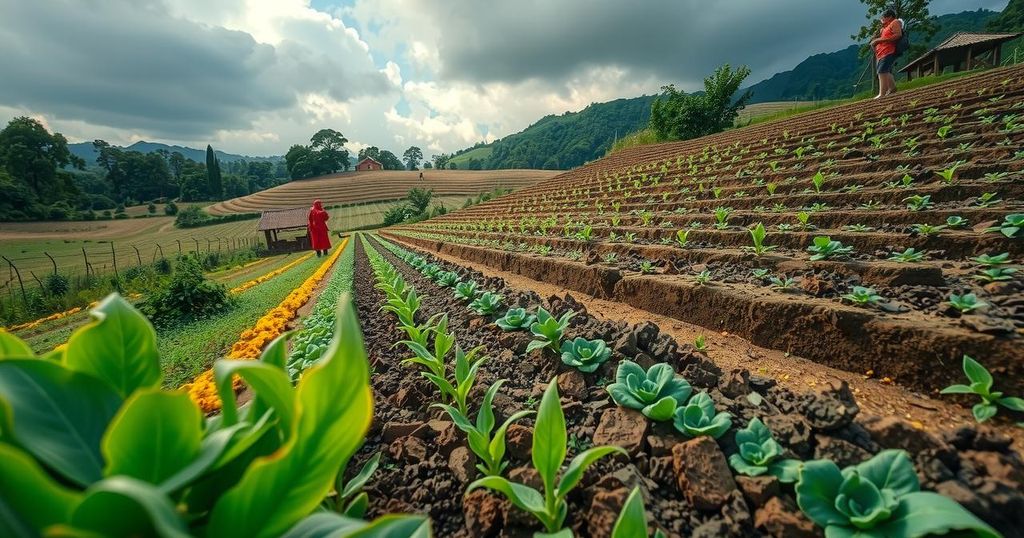A recent study reveals that reducing meat production by 13% in wealthier nations could remove 125 billion tons of CO₂ from the atmosphere by allowing former pastures to regenerate as forests. This strategy not only benefits climate change efforts but also supports global food security by maintaining effective livestock production methods in other regions.
Recent analysis by scientists suggests that wealthier nations could significantly aid climate change mitigation by implementing modest reductions in meat production. A targeted decrease of approximately 13% in these nations could potentially remove 125 billion tons of carbon dioxide from the atmosphere, surpassing the total global fossil fuel emissions recorded over the last three years. This reduction would allow former pastures to regenerate, enabling forests to grow and absorb CO₂, thus contributing to a pronounced decline in emissions. The lead author of the study, Matthew N. Hayek, emphasized, “We can achieve enormous climate benefits with modest changes to the total global beef production.” By strategically restoring forested areas, scientists believe substantial climate benefits can arise while minimizing the impact on food supply. Areas once dominated by cattle grazing hold particular potential for regrowth, leading to enhanced carbon capture in both trees and soil. The paper identified high-income countries as prime candidates for this reduction initiative due to their unproductive pasturelands and potential for afforestation. As ecosystems revert to forested states, they can effectively sequester additional carbon dioxide, thus improving overall climate responses. Comparatively, regions with year-round grass growth, such as sub-Saharan Africa, do not present the same opportunities for reduction. Research projected that a global removal of livestock from all suitable areas could sequester up to 445 gigatons of CO₂ by century’s end, a figure equivalent to over a decade of current global emissions. Hayek noted the viability of maintaining livestock grazing in native grasslands, which would still support the majority of global pasture production. Innovative remote sensing technology was utilized to assess pasture productivity, providing valuable insights into how livestock removal correlates with carbon regrowth potential. Furthermore, Hayek and his colleagues advocate for swift action toward these reductions, as timely measures are crucial to fulfilling international climate goals. The study sheds light on how addressing meat production can simultaneously benefit climate health and food security.
Climate change remains a pressing global challenge, and emissions produced by livestock farming, particularly beef production, are significant contributors to this issue. Scientists have increasingly called for measures to curb these emissions to facilitate ecological restoration and mitigate adverse climate impacts. The potential for restoring forests in previously grazed areas is of particular interest, as it provides a dual benefit: enhancing carbon sequestration and minimizing negative effects on food supply chains. High-income countries, owing to their agricultural practices, present unique opportunities for impactful change that could serve as a model for global climate initiatives.
The findings underscore the importance of strategic action in addressing climate change through manageable adjustments in meat production. Enhancing forest regeneration on previously grazed lands could yield significant carbon sequestration, contributing to climate goals without excessively disrupting food production systems. As nations seek methods to mitigate climate impacts responsibly, the emphasis on sustainable beef production offers a viable pathway for achieving both environmental and economic stability.
Original Source: www.eurasiareview.com






